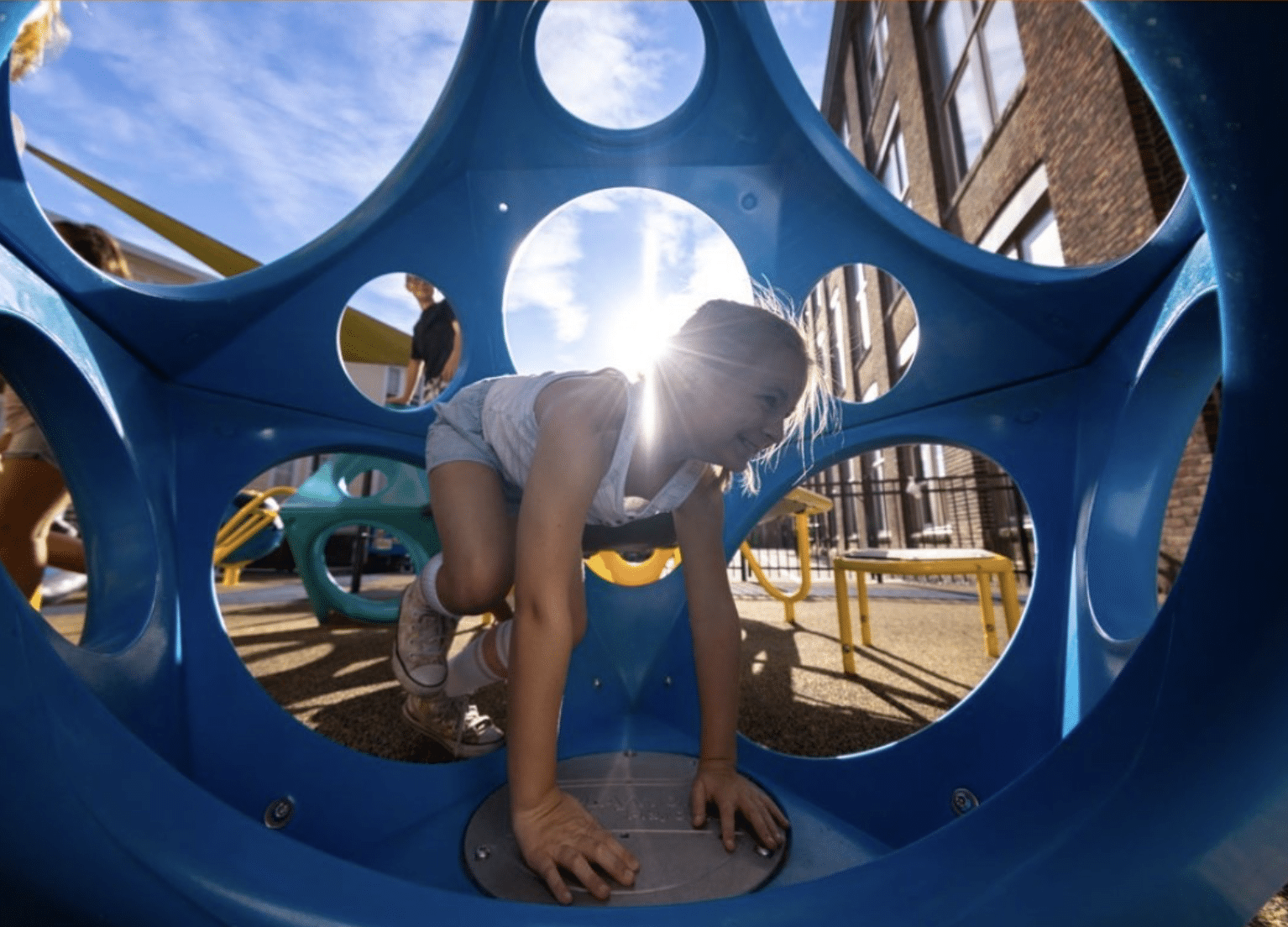In the world of playground design, there’s a powerful and transformative approach that’s gaining recognition: Trauma-Informed Design. It’s a concept that goes beyond aesthetics and functionality, focusing on creating play spaces that consider the emotional and psychological well-being of all children, including those who may have experienced trauma.
At Midstates Recreation, we’re committed to designing inclusive and safe play spaces that foster the healthy development of all children. In this blog post, we’ll explore the principles of Trauma-Informed Design and the impact it can have on playgrounds.
Understanding Trauma-Informed Design
Trauma-Informed Design is rooted in an understanding of how trauma affects individuals, especially children. Trauma can present itself in various ways, including sensory sensitivities, emotional triggers, and heightened stress responses. Trauma-Informed Design aims to create environments that minimize potential triggers and promote healing.
Open vs. Closed Spaces
One critical aspect of Trauma-Informed Design is the consideration of open and closed spaces within playgrounds:
Open Spaces: Open areas within a playground provide a sense of safety and visibility. Children who have experienced trauma often benefit from having a clear line of sight, reducing anxiety and allowing them to feel more secure. Open spaces also encourage social interaction and supervision, ensuring that children are safe while at play.
Closed Spaces: Closed spaces, on the other hand, offer opportunities for privacy and quiet reflection. For children who may become overwhelmed by sensory stimuli or social interactions, these closed spaces can provide a retreat to calm down and self-regulate. Closed spaces may include small nooks, quiet corners, or areas with natural elements like plants for a soothing atmosphere.
Design Considerations for Trauma-Informed Playgrounds
Sensory-Friendly Features: Incorporate sensory-friendly elements like soft textures, calming colors, and natural materials to create a soothing environment.
Flexible Play Zones: Design playgrounds with a variety of play zones, allowing children to choose the level of social interaction they are comfortable with.
Therapeutic Play Equipment: Include therapeutic play equipment such as swings and spinning devices that can help children with sensory processing difficulties self-regulate.
Clear Signage: Use clear signage to help children understand boundaries and rules, reducing anxiety about the unknown.
Community Engagement: Involve the community, including parents and caregivers, in the design process to ensure that the playground reflects the unique needs of the local population.
Trauma-Informed Design is not just about creating playgrounds; it’s about fostering environments where all children can feel safe, supported, and free to play. At Midstates Recreation, we believe that every child deserves access to inclusive and trauma-informed play spaces. By considering these needs within our playground designs, we aim to create well-balanced environments that promote healing.
Midstates Recreation designs, supplies, and builds community – enhancing recreational play and site structures. Midstates Recreation offers a variety of playground equipment in communities located in Ohio, Indiana, Kentucky, and Michigan. Our emphasis is not only to create play and recreation spaces for all but to also provide a truly valuable and inclusive addition to your community! Contact your local sales representative to learn more.


